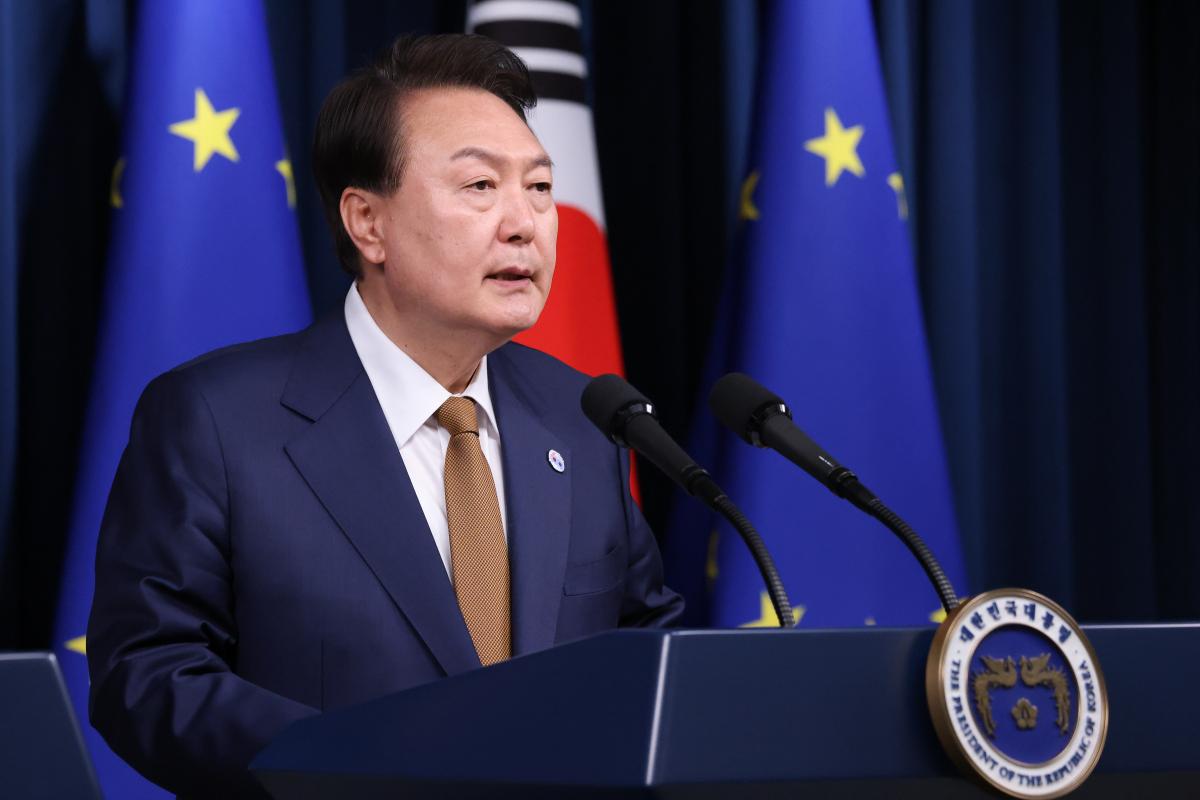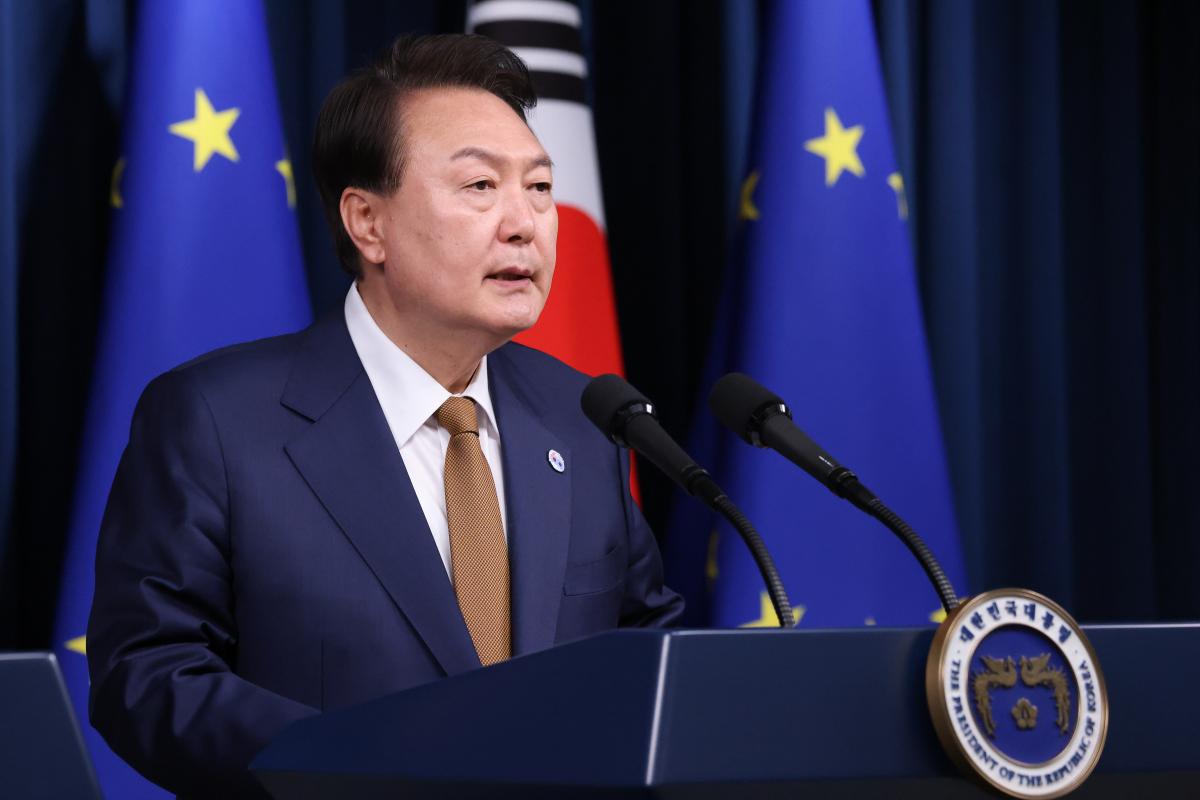“The case of issuing an arrest warrant for the current president of South Korea became the first in the country.”, — write: www.unian.ua
The case of issuing an arrest warrant for the current president of South Korea became the first in the country.
 At the same time, the president of South Korea said that his martial law decree was a legal act of governance / photo European UnionA South Korean court has issued arrest warrants for President Yoon Seok-yeol, who was impeached by parliament and searched his office and residence on sedition charges in connection with his short-term declaration of martial law, the Associated Press writes.
At the same time, the president of South Korea said that his martial law decree was a legal act of governance / photo European UnionA South Korean court has issued arrest warrants for President Yoon Seok-yeol, who was impeached by parliament and searched his office and residence on sedition charges in connection with his short-term declaration of martial law, the Associated Press writes.Such a case of issuing an arrest warrant for the current president of South Korea was the first. According to experts, there is little chance of arrest or search unless Yoon is officially removed from office.
Seoul’s Western District Court issued warrants for Yun’s arrest and to search the presidential office and residence in the center of the capital, the Office for the Investigation of High-Level Officials said in a statement. The department stressed that an investigation is ongoing into whether Yoon’s December 3 statement was a rebellion.
“Under South Korean law, a leader of a rebellion can face the death penalty or life in prison if convicted. Yoon has presidential immunity from most criminal prosecutions, but that privilege does not extend to charges of rebellion or treason,” the AP explained.
The newspaper recalled that Yoon’s powers were suspended after the opposition-controlled National Assembly voted to impeach him on Dec. 14 for imposing martial law in the country.
By law, the president in South Korea can only declare martial law during times of war or similar emergencies, and does not have the right to suspend the government even under martial law.
Meanwhile, Yoon insists that his decree was a legitimate act of governance and called it a warning to the main liberal opposition Democratic Party, which he called a “monster” and an “anti-government force” that has used its legislative majority to impeach top officials, undermine the government budget and which , according to him, sympathizes with the DPRK.
Yun is likely to ignore the warrants, experts say.
“He has already evaded repeated requests from investigative bodies to appear for questioning, and the presidential security service has blocked attempts to search his office and residence, citing the law that prohibits searches of objects containing state secrets,” the publication emphasized.
For his part, the president’s lawyer Yoon Kap-kyun called the arrest warrant “invalid” and “illegal”, stressing that the anti-corruption agency has no legal authority to investigate allegations of sedition.
Impeachment of the president in South Korea – what is knownAs UNIAN wrote, the South Korean parliament supported the impeachment of President Yoon Seok-yeol. 204 deputies voted “for” and 85 voted against.
On the eve of this, more than 100,000 people protested in South Korea, demanding the resignation of the president. Despite the cold, community groups, unions, students and other citizens filled the streets outside the Assembly in western Seoul, holding placards calling for Yun’s impeachment.
You may also be interested in news:
- Russia was preparing officers to attack Japan and South Korea: FT learned the list of targets
- Elon Musk interferes in German elections to weaken Europe, – Vice Chancellor
- Jinping and Kim Jong-un congratulated Putin on the New Year and promised even greater cooperation
